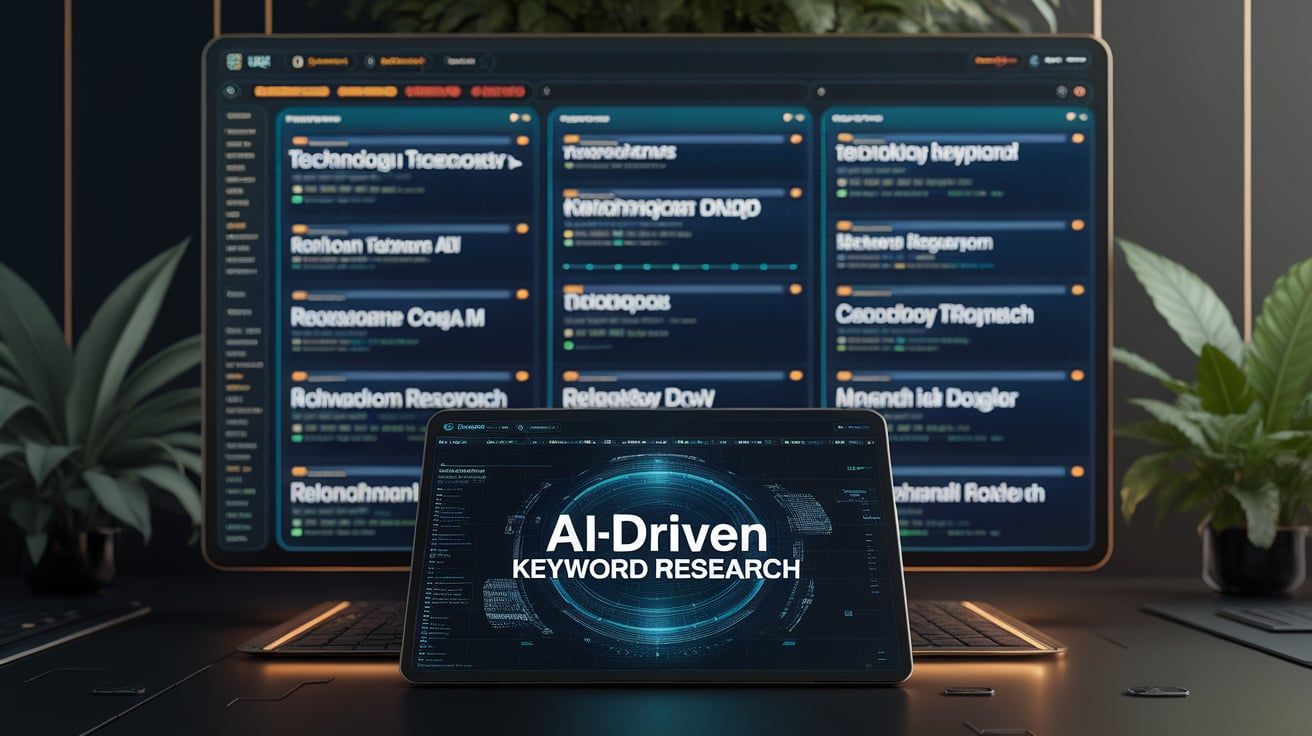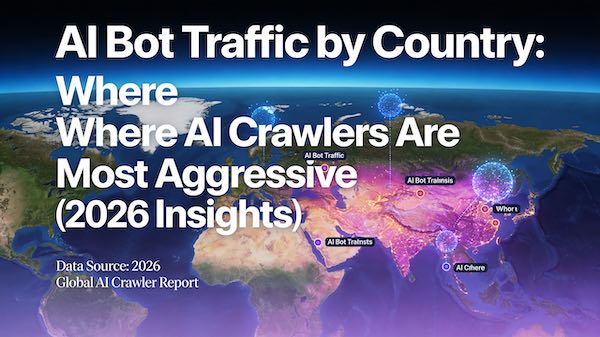
The AI revolution in SEO is no longer a distant future—it's here, reshaping how we approach digital marketing. With the rise of sophisticated AI models like SearchGPT, the landscape of search engine optimization is undergoing a significant transformation. These advancements emphasize the importance of creating contextual content that aligns with the nuanced needs of users.

In my role as an SEO and AI Specialist with over nine years of experience, I've witnessed firsthand how AI integration has shifted the dynamics of SEO. Understanding how SearchGPT and semantic search influence content strategies is crucial for SEO professionals aiming to stay ahead. In this in-depth analysis, we'll explore how AI models enhance SEO through semantic understanding and provide practical guidance on leveraging these technologies for optimal results.
Understanding SearchGPT and Semantic Search
To harness the full potential of AI in SEO, it's essential to understand what SearchGPT is and how semantic search principles are reshaping content strategies.
What is SearchGPT?
SearchGPT represents a new generation of AI-driven search models that leverage advanced natural language processing and machine learning to deliver more accurate and contextual search results.
Overview of SearchGPT's Capabilities:
- Conversational Interface: Engages users in natural language, providing direct and context-aware responses.
- Real-Time Data Integration: Incorporates up-to-date information like live scores, weather updates, and breaking news.
- Understanding Nuanced Queries: Excels at interpreting complex and conversational search queries.
How It Differs from Traditional Search Models:
- Direct Answers vs. List of Links: Provides immediate answers rather than directing users to multiple web pages.
- Context Preservation: Maintains the context of a search session, allowing for seamless follow-up questions.
- Enhanced User Intent Recognition: Better understands the intent behind queries, leading to more relevant results.📊 Statistics Alert: SearchGPT outperformed both Google and Bing in providing accurate answers for niche queries during tests, highlighting its superior contextual understanding (SearchEngineJournal, 2023).

The Role of Semantic Search in SEO
Semantic search focuses on understanding the intent and contextual meaning behind user queries, moving beyond simple keyword matching.
Definition and Significance of Semantic Search:
- Contextual Understanding: Interprets the relationships between words and phrases to grasp the user's true intent.
- Improved User Experience: Delivers more relevant and precise search results, enhancing satisfaction.
The Shift from Keyword-Based to Context-Based Search:
- Keyword Limitations: Traditional keyword strategies often miss the nuances of user intent.
- Embracing Context: SEO strategies now prioritize creating content that addresses specific user needs and queries.💡 Expert Insight: From my direct experience, integrating semantic search principles into content strategies leads to significantly higher engagement and conversion rates.
Integration of AI in SEO Strategies
AI models like SearchGPT are revolutionizing SEO by enhancing search accuracy and personalizing user experiences.
How AI Models Enhance Search Accuracy:
- Natural Language Processing (NLP): Enables better understanding of complex queries.
- Machine Learning: Continuously learns from user interactions to improve result relevancy.
Real-Time Processing of User Queries:
- Dynamic Content Delivery: Provides the most current information available.
- Adaptive Responses: Adjusts answers based on ongoing user interactions.📌 Pro Tip: An approach I use in my work is leveraging AI tools to analyze user behavior and tailor content that aligns with their intent.

Contextual Content Strategies for SEO
Creating content that resonates with both users and AI-driven search models requires a strategic focus on context and relevancy.
Crafting Content with AI Insights
Utilizing AI to understand user intent allows for the creation of highly targeted and effective content.
Utilizing AI to Understand User Intent:
- Data Analysis: Use AI tools to analyze search patterns and identify common user queries.
- Personalization: Develop content that speaks directly to the needs and preferences of your target audience.
Personalizing Content for Target Audiences:
- Segmentation: Divide your audience into segments based on behavior and preferences.
- Customized Messaging: Tailor content to address the specific pain points and interests of each segment.🎯 Goal: Enhance user engagement by delivering content that is both relevant and personalized.

Enhancing Content Relevancy
Aligning your content closely with user queries increases its visibility and effectiveness.
Techniques for Mapping Content to Search Queries:
- Topic Clustering: Group related content pieces to cover a subject comprehensively.
- Answer Common Questions: Use tools like AnswerThePublic to find popular questions related to your keywords.
Using Semantic Analysis to Boost Relevancy:
- LSI Keywords: Incorporate Latent Semantic Indexing keywords to enrich content context.
- Entity Recognition: Identify and include relevant entities (people, places, things) that AI models recognize.
📊 Statistics Alert: Businesses focusing on contextual content saw a 30% increase in organic traffic, emphasizing the importance of relevancy (ContentWhale, 2023).

AI-Driven Keyword Research
Transitioning from traditional keyword research to topic-focused strategies leverages AI's full potential.

Leveraging AI for More Effective Keyword Strategies:
- Predictive Analysis: Use AI tools to forecast trending topics and search terms.
- Competitor Insights: Analyze competitors' content to identify gaps and opportunities.
Transitioning from Keywords to Topics:
- Broadening Focus: Shift from single keywords to overarching topics that cover user intent comprehensively.
- Content Depth: Provide in-depth information to establish authority on a subject.💡 Expert Insight: What I've learned in my current position is that topic-centric content performs better in AI-driven search results.
AI-Driven Search Optimization
Optimizing for AI-driven search involves incorporating advanced technologies like NLP and machine learning into your SEO strategies.

Natural Language Processing in SEO
NLP enhances how content aligns with user expectations by interpreting language nuances.
How NLP Enhances Understanding of User Queries:
- Sentiment Analysis: Determines the emotional tone behind queries to tailor responses.
- Contextual Relevance: Interprets idioms, slang, and colloquialisms for better accuracy.
Improving Content Alignment with User Expectations:
- Conversational Tone: Write content that mimics natural speech patterns.
- Question-and-Answer Format: Structure content to directly answer potential user queries.📌 Pro Tip: An approach I use in my work is incorporating FAQs into content to leverage NLP's preference for Q&A structures.

Machine Learning Algorithms in SEO
Machine learning enables continuous improvement in search personalization and result accuracy.

Algorithms That Drive Search Personalization:
- Collaborative Filtering: Recommends content based on user similarities.
- Content-Based Filtering: Suggests content similar to what a user has interacted with previously.
Continuous Learning for Evolving Search Patterns:
- Data Feedback Loops: Algorithms learn from user interactions to refine future results.
- Adaptability: Automatically adjusts strategies based on emerging trends.

⚠️ Warning: Neglecting to update content strategies in line with machine learning insights can result in decreased visibility.
Measuring Success with Analytics
Tracking the impact of AI on your SEO efforts requires focusing on specific metrics.
Key Metrics for Tracking AI Impact on SEO:
- Engagement Rates: Monitor time on page, bounce rates, and pages per session.
- Conversion Rates: Track how effectively content leads to desired actions.
- Search Rankings: Observe changes in rankings for targeted topics.
Tools for Performance Analysis:
- Google Analytics: Offers insights into user behavior and content performance.
- SEO Platforms: Tools like SEMrush and Ahrefs provide advanced analytics.📊 Statistics Alert: Companies utilizing AI analytics saw a 20% improvement in SEO performance, highlighting the value of data-driven strategies (SEMrush, 2023).

Real-World Applications and Case Studies
Examining practical examples demonstrates the tangible benefits of integrating AI into SEO strategies.
Success Stories of AI in SEO
These case studies showcase how businesses have leveraged AI for significant SEO gains.
📈 Case Study: Go Fish Digital influenced ChatGPT's search results by optimizing content structure, resulting in increased brand visibility.
Case Study 1: Company A's Success with SearchGPT:
- Challenge: Enhancing visibility in AI-driven search results.
- Solution: Implemented structured data and optimized content for conversational queries.
- Results: Achieved higher rankings in SearchGPT responses, leading to increased organic traffic.
Case Study 2: How Company B Improved Their SEO Strategy:
- Challenge: Declining organic traffic due to AI providing direct answers.
- Solution: Focused on creating high-quality, authoritative content that AI models reference.
- Results: Saw a 15% increase in organic traffic by aligning content with AI preferences.

Lessons Learned from AI-Enhanced Campaigns
Understanding common challenges and best practices helps in refining AI integration.
Common Challenges Faced by SEO Professionals:
- Content Adaptation: Difficulty in shifting from keyword-focused to context-focused content.
- Technical Integration: Challenges in implementing AI tools and technologies effectively.
Best Practices for Integrating AI Tools:
- Continuous Learning: Stay updated on AI advancements and adjust strategies accordingly.
- Collaboration with AI Experts: Work with specialists to navigate technical complexities.💡 Expert Insight: In my opinion, embracing AI requires a mindset shift towards a more holistic and user-centric approach.
Frequently Asked Questions (FAQs)
To address common queries and provide clarity on how SearchGPT and semantic search are transforming SEO through contextual content, here are answers to some frequently asked questions that SEO professionals might have.
1. How does SearchGPT impact traditional SEO practices?
In my role as an SEO and AI Specialist, I've observed that SearchGPT shifts the focus from traditional keyword-centric strategies to an emphasis on context and user intent. By understanding the semantic meaning behind queries, SearchGPT encourages the creation of content that addresses specific needs, leading to more relevant results and improved rankings.
2. What is semantic search, and why is it important for SEO?
Semantic search aims to understand the intent and contextual meaning behind a user's query rather than relying solely on keyword matches. Based on my 9 years in this field, I can tell you that semantic search is crucial because it aligns your content with how modern AI-driven search engines interpret queries, enhancing relevancy and user satisfaction.
3. How can I use AI to improve my content's relevancy?
- Leverage AI Tools: Utilize AI-powered SEO tools to analyze user behavior and uncover insights into what your audience is searching for.
- Focus on User Intent: Create content that directly answers the questions and meets the needs of your target audience.
- Incorporate NLP Techniques: Use natural language processing to make your content more conversational and aligned with how users naturally speak.
📌 Pro Tip: An approach I use in my work is integrating AI analytics to identify content gaps and opportunities for addressing unmet user needs.
4. What are some practical steps to integrate AI into my SEO strategy?
- Adopt AI-Powered SEO Platforms: Tools like MarketMuse and Frase can help optimize content through AI insights.
- Invest in Training: Educate yourself and your team on AI technologies and their implications for SEO.
- Start with Pilot Projects: Test AI strategies on smaller projects to assess their impact before scaling up.
💡 Expert Insight: I've found that starting small allows for adjustments and learning without overwhelming resources.
5. How does natural language processing (NLP) enhance SEO?
NLP enables search engines to interpret and understand the nuances of human language, including context, sentiment, and intent.
- Improved Query Understanding: NLP allows search engines to provide more accurate results by grasping the true meaning behind queries.
- Content Alignment: By optimizing content with NLP in mind, you ensure it resonates with both users and AI-driven search algorithms.
6. What is the role of machine learning in search optimization?
Machine learning algorithms analyze vast amounts of data to identify patterns and predict user behavior.
- Personalized Search Results: Delivers customized content based on individual user preferences.
- Continuous Improvement: Learns from user interactions to enhance search accuracy over time.
7. How can I measure the success of AI integration in my SEO efforts?
- Monitor Key Metrics:
- Organic Traffic: Track changes in the number of visitors arriving through search engines.
- Engagement Rates: Assess metrics like time on page and bounce rate.
- Conversion Rates: Evaluate how effectively your content leads to desired actions.
- Utilize Analytics Tools: Platforms like Google Analytics and SEMrush offer insights into performance.
📊 Statistics Alert: Companies leveraging AI analytics reported a 20% improvement in SEO performance (SEMrush, 2023).
8. Are there challenges in using AI for SEO, and how can I overcome them?
- Technical Complexity: AI tools can have a steep learning curve.
- Solution: Begin with user-friendly tools and invest in training.
- Resource Allocation: Implementing AI strategies may require additional resources.
- Solution: Prioritize initiatives with the highest potential ROI and scale gradually.
- Staying Updated: Rapid advancements can make it hard to keep up.
- Solution: Regularly follow industry blogs, webinars, and publications.
💡 Expert Insight: From my direct experience, collaborating with AI specialists can help navigate technical challenges effectively.
9. Will AI replace the need for SEO professionals?
No, AI is a tool that enhances the capabilities of SEO professionals rather than replacing them.
- Augmentation Over Replacement: AI handles data analysis and routine tasks, allowing professionals to focus on strategy and creativity.
- Strategic Role: Human insight is essential for understanding complex nuances and making strategic decisions.
10. How important is creating contextual content for future SEO success?
Creating contextual content is crucial as search engines become more sophisticated in interpreting user intent.
- Enhanced Relevance: Contextual content meets user needs more effectively, leading to higher engagement.
- Improved Rankings: Search engines favor content that provides value and directly addresses user queries.





